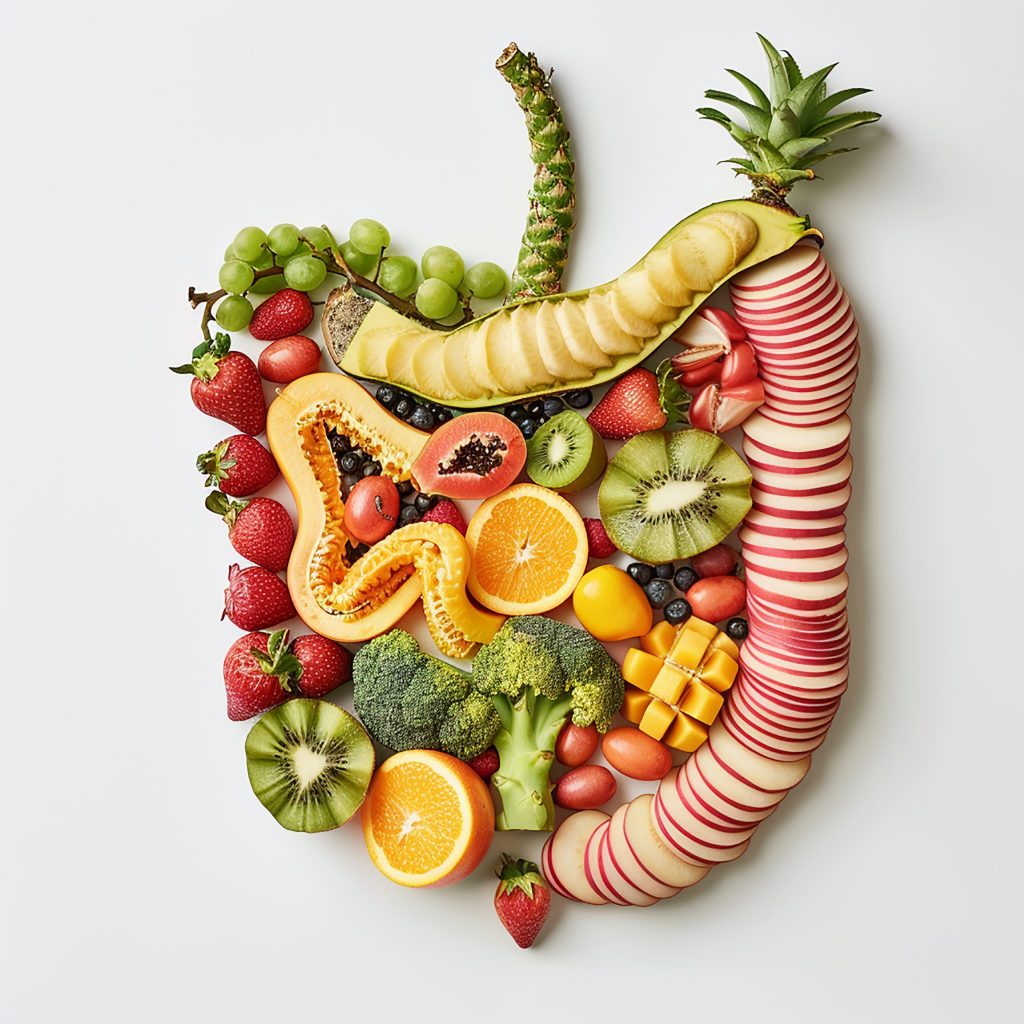Understanding Your Gut: More Than Just Digestion
Your gut health plays a bigger role than most people realize – it doesn’t just help you digest food, it also affects your immunity, mood and energy levels. Yet, there’s so much misinformation online about what’s “good” or “bad” for your gut that it can get confusing fast.
Your gut health plays a bigger role than most people realize – it doesn’t just help you digest food, it also affects your immunity, mood and energy levels. Yet, there’s so much misinformation online about what’s “good” or “bad” for your gut that it can get confusing fast.

You Need to Detox or Cleanse Your Gut Regularly
Fact: Your body naturally detoxifies itself through your liver, kidneys and intestines.
Fancy detox drinks or colon cleanses often do more harm than good. They can cause dehydration, nutrient loss, and disturb your gut bacteria.
What to do instead: Eat fiber-rich foods, stay hydrated, and allow your body’s natural detox system to function as designed.
Probiotics Can Fix Every Gut Problem

Fact: Probiotics can help certain conditions but they aren’t a one-size-fits-all solution.
Different probiotic strains have different effects. What works for one person may not work for another.
If you have gut issues like bloating, IBS, or constipation, speak to a gastroenterologist before starting supplements. A healthy diet and lifestyle are just as important as any probiotic capsule.
All Fermented Foods Are Automatically Good for Your Gut
Fact: Only fermented foods that contain live cultures truly support gut health.
Yogurt, kefir, and kimchi can be beneficial, but check for labels like “live cultures” or “unpasteurized.”
Many commercial versions are processed, pasteurized, or high in salt and sugar — which can cancel out the benefits.
Eat them in moderation to avoid gas or bloating.
Gluten Is Bad for Everyone
Fact: Gluten only harms people with celiac disease or gluten sensitivity.
For most people, gluten-containing grains such as wheat and barley provide essential nutrients and fiber.
Eliminating gluten unnecessarily may lead to deficiencies. If you suspect gluten sensitivity, get medically tested before changing your diet.
You Must Have a Bowel Movement Every Day
Fact: “Normal” is different for everyone.
Some people pass stool daily, others 3-4 times a week – both can be healthy.
What matters most is comfort, consistency, and no pain.
If you notice sudden changes, bleeding, or discomfort, consult your doctor instead of self-medicating.
The More Fiber, the Better
Fact: Fiber is essential, but too much too fast can upset your stomach.
A sudden increase can cause bloating, cramps, or gas. Gradually include both soluble (oats, fruits) and insoluble (vegetables, whole grains) fiber.
Always drink enough water – it helps fiber do its job effectively.

Gut Health Only Affects Digestion
Fact: Your gut influences your brain, immunity, and mood too.
The gut and brain are linked through the gut-brain axis. When your gut bacteria are imbalanced, it can affect how you feel and function.
Stress, poor sleep, or processed food can disturb this balance – leading to fatigue, mood swings, or low immunity.
A balanced diet, stress control and good sleep are key to restoring harmony.
You’ll Notice Gut Health Changes Overnight
Fact: Building a healthy gut takes time and consistency.
You might feel small improvements like less bloating or better digestion in a few days, but lasting gut balance can take weeks or months.
Focus on long-term habits rather than quick fixes or miracle cures.
Simple Tips for a Healthy Gut
| Habit | Why It Matters | Quick Tip |
| Eat a variety of foods | Feeds diverse gut bacteria | Include different fruits, grains, and legumes every week |
| Add fermented foods | Provides good bacteria | Choose yogurt, kefir, or buttermilk with live cultures |
| Stay hydrated | Aids digestion and fiber movement | Drink at least 2–3 liters of water daily |
| Be active | Boosts metabolism and motility | Walk after meals or do light exercise |
| Sleep well & manage stress | Prevents gut imbalance | Practice yoga, meditation, or deep breathing |
When to Visit a Gastroenterologist
If you experience any of the following for more than two weeks, it’s time to see a doctor:
- Persistent abdominal pain or bloating
- Blood in stool
- Unexplained weight loss
- Chronic constipation or diarrhea
- Sudden change in bowel habits
At Vasavi Hospitals, our Department of Gastroenterology uses advanced diagnostic tools like endoscopy, colonoscopy, and microbiome analysis to find the root cause of your problem and guide you toward recovery.
FAQs
1.Can detox teas improve gut health?
No. Detox teas don’t cleanse your gut – they often cause dehydration or disrupt gut balance.
2.How do I know which probiotic is right for me?
It depends on your condition. Always consult a gastroenterologist before choosing one.
3.Can stress really cause stomach issues?
Yes. Stress can alter gut bacteria, increase acid production, and cause symptoms like indigestion or IBS.
4.How long does it take to improve gut health?
Some benefits appear in a few days, but long-term gut balance needs consistent diet and lifestyle habits.
Conclusion
Your gut health is the foundation of your overall well-being. By knowing the facts instead of following myths, you can protect your digestion, strengthen your immunity and boost your daily energy.
At Vasavi Hospitals, we’re committed to providing accurate guidance and expert care for all digestive health needs.
Book your consultation today and let our specialists help you restore balance – naturally and safely.
For Appointment Call: 080-71 500 500
